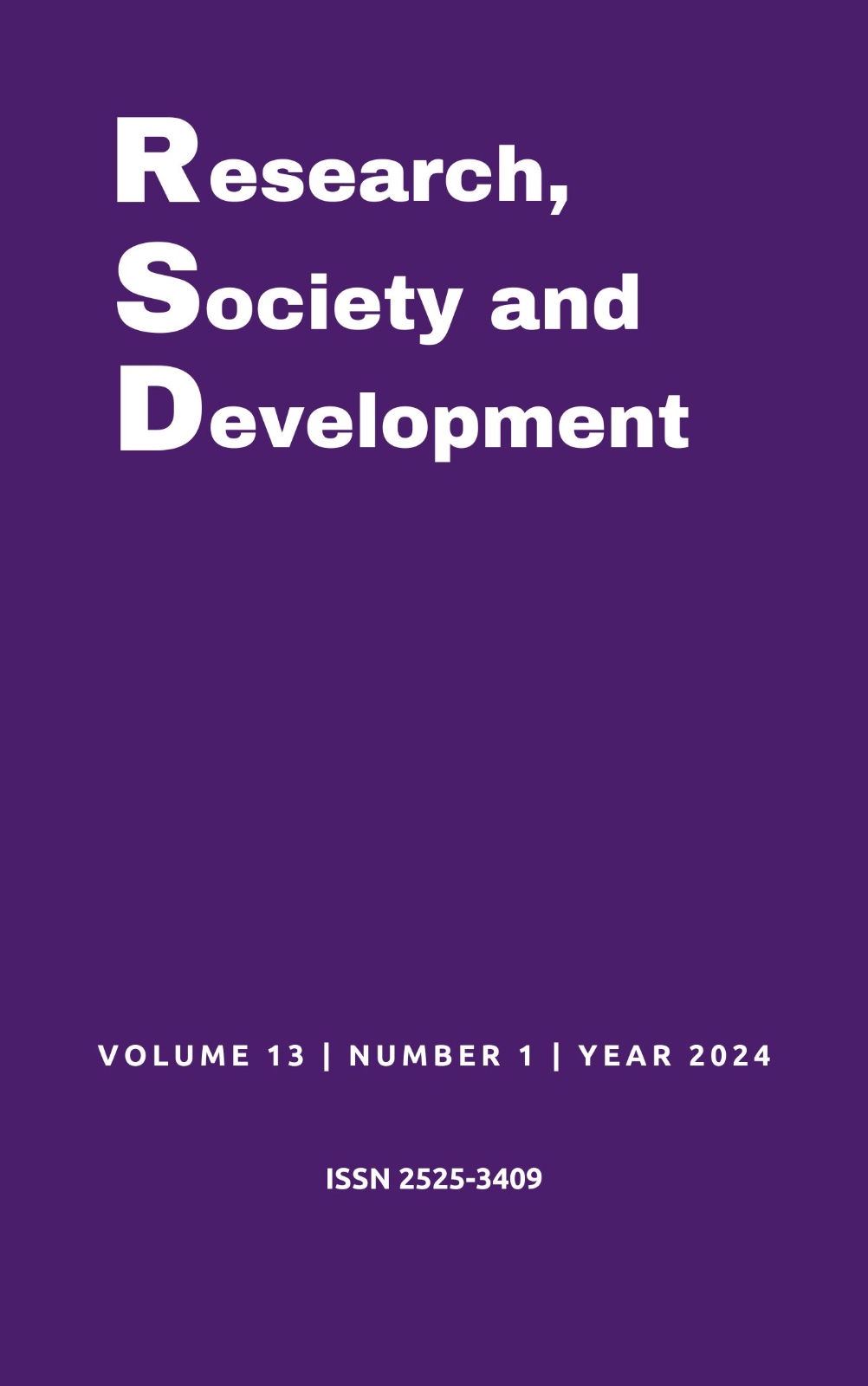Comparative analysis of programming languages for solving mathematical problems: An experience in integrated high school
DOI:
https://doi.org/10.33448/rsd-v13i1.44750Keywords:
Modeling; Problem solving; Programming languages; Collaborative learning.Abstract
The present work aims to investigate the possibility of using programming languages to improve mathematics learning, based on the application of programming resources to solve mathematical problems, influenced by students' personal repertoires, interactions and collaborations with the work team. Problems adapted from the Brazilian Informatics Olympiads, applied in previous years, were used for resolution in the languages C++, Java, JavaScript and Python, at the discretion of the participants. The solution strategy applied, as well as the use or not of external materials for consultation, was free choice, being encouraged collaboration between students and the use of more than one programming language to solve each problem. In the end, two problems were chosen for quantitative analysis, based on the metrics number of lines of code, execution time and number of calls to functions in the source code. A qualitative analysis of the problem-solving process was also carried out. The use of different strategies to solve problems was observed, mainly influenced by students' previous experiences and resources specific to the available languages. An increase in the level of programming and problem-solving skills and an improvement in the perception of one's own skills in both areas were noted.
References
Bassanezi, R. C. (2015). Modelagem matemática: teoria e prática. Contexto.
Brasil. (2022). Parecer CNE/CEB nº 2/2022, de 17 de fevereiro de 2022. Normas sobre computação na educação básica – complemento à Base Nacional Comum Curricular (BNCC). http://portal.mec.gov.br/conselho-nacional-de-educacao/base-nacional-comum-curricular-bncc
Carvalho, F. J. R., & Klüber, T. E. (2021). Modelagem matemática e programação de computadores: uma possibilidade para a construção de conhecimento na educação básica. Educação Matemática Pesquisa, 23(1), 297-323. http://doi.org/10.23925/1983-3156.2021v23i1p297-323
Dillenbourg, P. (1999). What do you mean by collaborative learning? In: Dillenbourg, P. (Ed.). Collaborative learning: cognitive and computational approaches. Elsevier.
Ferreira, R. C., & Duarte, S. (2019). Ensino de programação: trajetória histórico-social e avanços na cultura digital no Brasil. Revista Brasileira de Ensino de Ciência e Tecnologia, 12(1), 386-408. http://periodicos.utfpr.edu.br/rbect/article/view/7532
Franco, M. A. S. (2005). Pedagogia da pesquisa-ação. Educação e Pesquisa, 31(3), 483-502. http://doi.org/10.1590/S1517-97022005000300011
Freire, P. (2019). Pedagogia da autonomia: saberes necessários à prática educativa. (74a ed.). Paz & Terra.
Gowin, D. B. (1981). Educating. Cornell University Press.
Guedes, K., Meira, A. H., Beleti Junior, C. R., & Shirabayashi, J. V. (2020). Integração no ensino de disciplinas matemáticas e de programação: uma revisão sistemática. Revista de Ensino de Engenharia, 39, 379-389.
Hoffman, R. (2016). Análise estatística de relações lineares e não lineares. ESALQ-USP.
Holanda, W. D., Coutinho, J. C. S., & Fontes, L. M. O. (2018). Uma intervenção metodológica para auxiliar a aprendizagem de programação introdutória: um estudo experimental. In: Anais do VII Congresso Brasileiro de Informática na Educação. http://repositorio.ufc.br/handle/riufc/44088
Kelly, G. A. (1963). Theory of personality: the psyschology of personal constructs. Norton.
Kilhamn, C., Brating, K., & Rolandsson, L. (2021). Teachers’ arguments for including programming in mathematics education. In: Bringing Nordic mathematics education into the future: Proceedings of Norma 20. http://www.diva-portal.org/smash/get/diva2:1541426/FULLTEXT01.pdf
Pereira Jr. H. N. (2021). Matemática e programação: uma nova abordagem de ensino. Dissertação (Mestrado) Programa de Pós-Graduação em Matemática. PUC/Rio de Janeiro, RJ.
Pontes, E. A. S., Silva, J. C. S., Santos, J. B., Ribeiro, R. L. A. O., Silva, J. Cerqueira, P. C., & Silva, B. H. M. S. (2022). Desafios matemáticos em sala de aula: uma prática metodológica para ensinar e aprender matemática através da resolução de problemas. Research, Society and Development, 11(8), e50711830901. http://doi.org/10.33448/rsd-v11i8.30901
Proetti, S. (2017). As pesquisas qualitativa e quantitativa como métodos de investigação científica: um estudo comparativo e objetivo. Revista Lumen, 2(4). https://doi.org/10.32459/revistalumen.v2i4.60
Rogers, C. (1973). Liberdade para aprender: uma visão do que a educação pode se tornar. (2a ed.). Interlivros.
Thiollent, M. (2018). Metodologia da pesquisa-ação. (18a ed.). Cortez.
Soistak, A. V. (2016). Uma experiência com a modelagem matemática no ensino médio profissionalizante. In: Brandt, C. F., Burak, D., Klüber, T. E. (Orgs.). Modelagem matemática: perspectivas, experiências, reflexões e teorizações (2a ed.). Editora UEPG.
Vygotsky, L. S. (2007). A formação social da mente. (7a ed.). Martins Fontes.
Zapalowski, V. (2011). Análise quantitativa e comparativa de linguagens de programação. Trabalho de Conclusão de Curso (Graduação) Bacharelado em Ciência da Computação. UFRGS/Porto Alegre, RS. http://lume.ufrgs.br/handle/10183/31036
Downloads
Published
How to Cite
Issue
Section
License
Copyright (c) 2024 Edison Garreta de Andrade; Welyrson Carlos Coutinho Silva; Felipe Kailan Oliveira Lacerda; Paulo Vitor dos Santos Ferreira; Marcos Eduardo Torres de Abreu; João Victor Barbosa da Silva; Vitória Maria Corrêa de Sena Pereira

This work is licensed under a Creative Commons Attribution 4.0 International License.
Authors who publish with this journal agree to the following terms:
1) Authors retain copyright and grant the journal right of first publication with the work simultaneously licensed under a Creative Commons Attribution License that allows others to share the work with an acknowledgement of the work's authorship and initial publication in this journal.
2) Authors are able to enter into separate, additional contractual arrangements for the non-exclusive distribution of the journal's published version of the work (e.g., post it to an institutional repository or publish it in a book), with an acknowledgement of its initial publication in this journal.
3) Authors are permitted and encouraged to post their work online (e.g., in institutional repositories or on their website) prior to and during the submission process, as it can lead to productive exchanges, as well as earlier and greater citation of published work.

